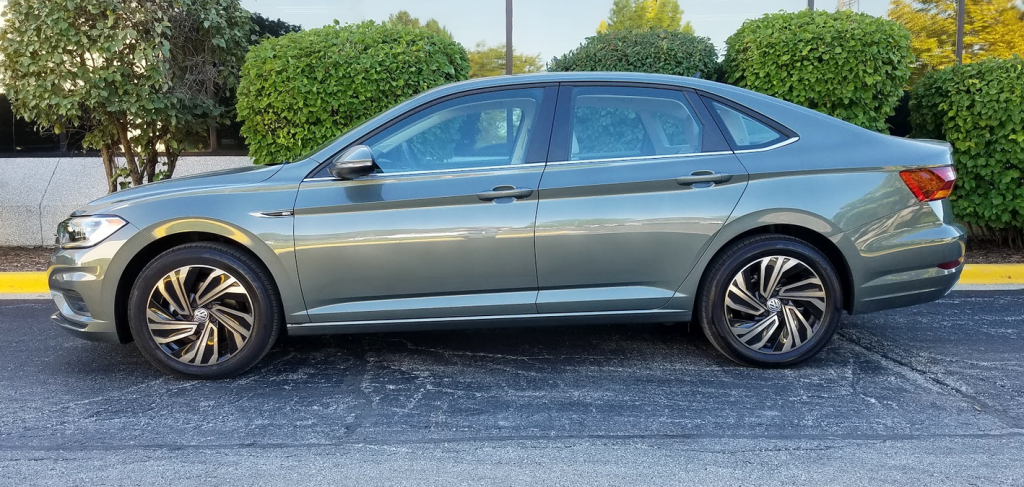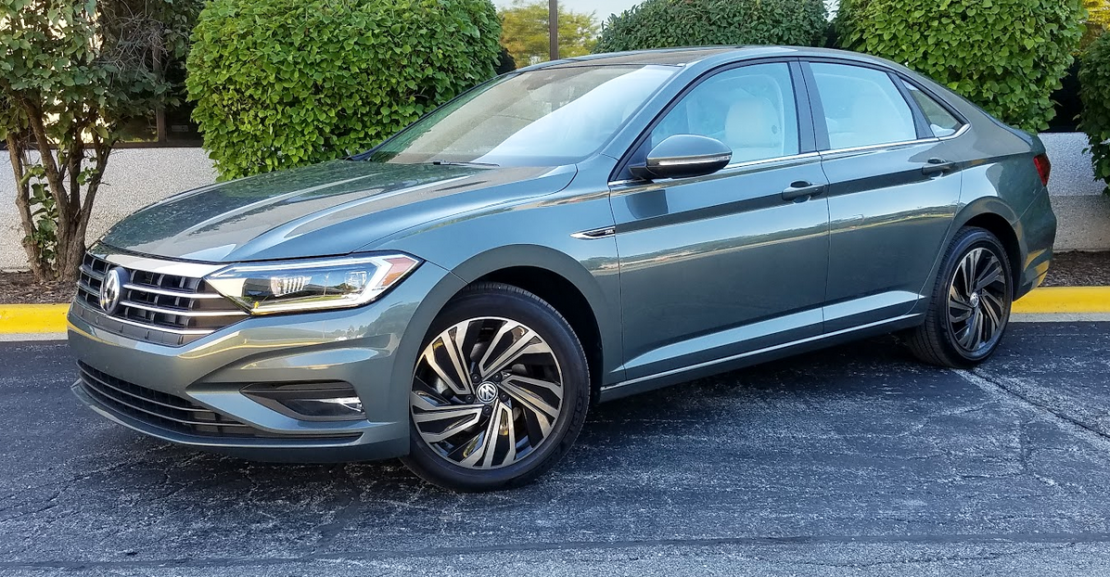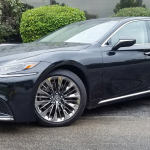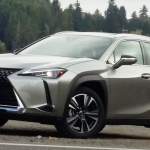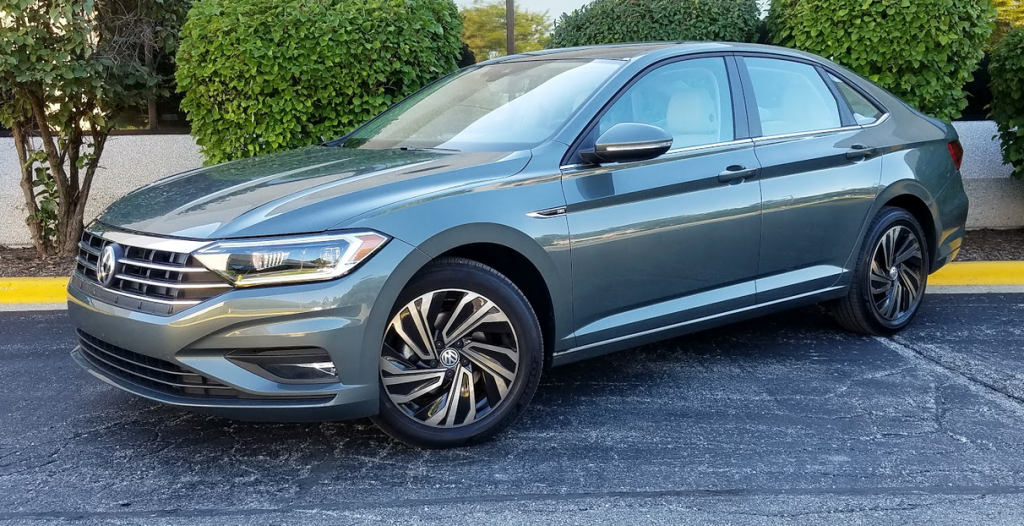
 2019 Volkswagen Jetta SEL Premium
2019 Volkswagen Jetta SEL Premium
Class: Compact Car
Miles driven: 309
Fuel used: 9.8 gallons
Real-world fuel economy: 31.5 mpg
Driving mix: 55% city, 45% highway
EPA-estimated fuel economy: 30/40/34 (city, highway, combined)
| CG Report Card | |
|---|---|
| Room and Comfort | A- |
| Power and Performance | B |
| Fit and Finish | A- |
| Fuel Economy | A- |
| Value | B+ |
| Report-card grades are derived from a consensus of test-driver evaluations. All grades are versus other vehicles in the same class. Value grade is for specific trim level evaluated, and may not reflect Consumer Guide's impressions of the entire model lineup. | |
| Big & Tall Comfort | |
| Big Guy | B |
| Tall Guy | B |
| Big & Tall comfort ratings are for front seats only. "Big" rating based on male tester weighing approximately 350 pounds, "Tall" rating based on 6'6"-tall male tester. | |
Fuel type: Regular gas
Base price: $26,945 (not including $850 destination charge)
Options on test vehicle: None
Price as tested: $27,795
Quick Hits
The great: User-friendly control layout; passenger space
The good: Decent list of comfort and convenience features for the money
The not so good: Ride is a bit less refined than in some class rivals, some cost-cutting evident in the interior
More Jetta price and availability information
John Biel
The all-new 2019 Volkswagen Jetta is extremely easy to like. Absolutely loving it may be a harder place to reach.
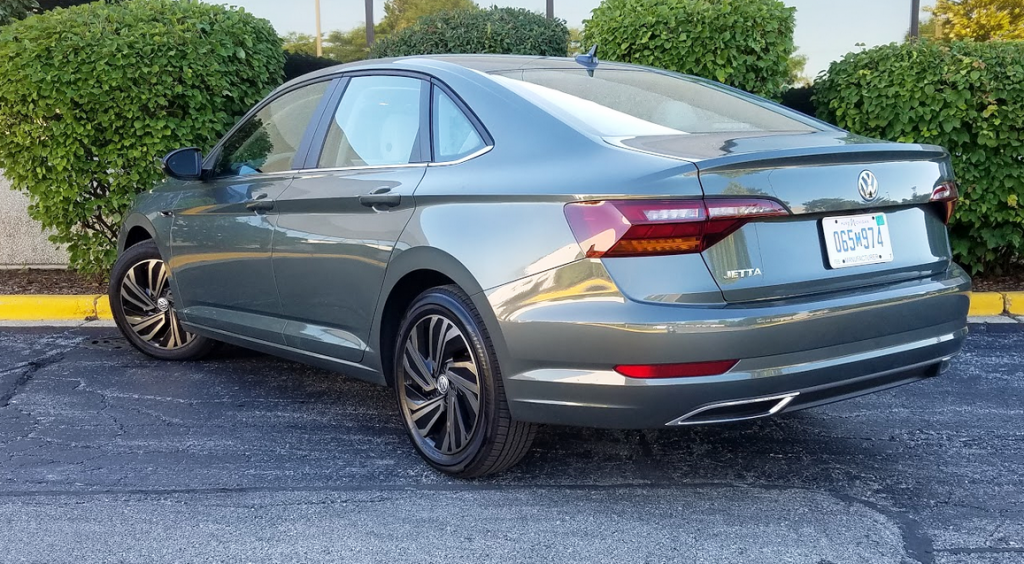
As your humble servants at Consumer Guide have already noted, the seventh generation of the popular compact sedan comes to market on a platform adapted from VW’s global product portfolio. It led to a Jetta that is slightly wider, taller, and longer than before, which enables increased interior room in a car that already had good marks in that category. There are more technology features—some standard—and better projected city fuel mileage. Plus, prices are still very manageable, even for the top-line SEL Premium that CG drove for this test.
Test Drive: 2019 Volkswagen Jetta R-Line
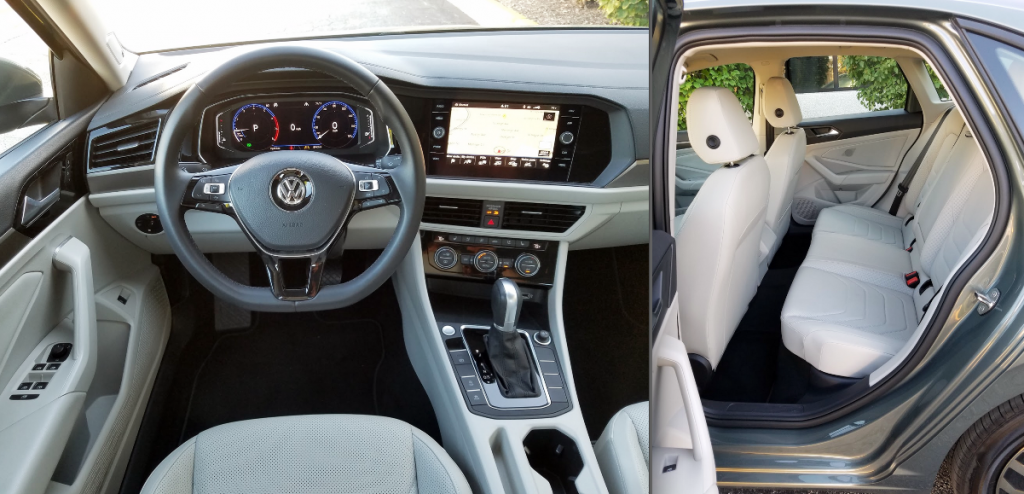
The quest to keep things affordable comes at some cost, however. The simpler rear suspension is less compliant than previous setups that won the Jetta a reputation as a bargain European sport sedan. Engine choices are restricted, a little bit of trunk capacity has been pinched off, and there are a few evident touches of cabin cost cutting.
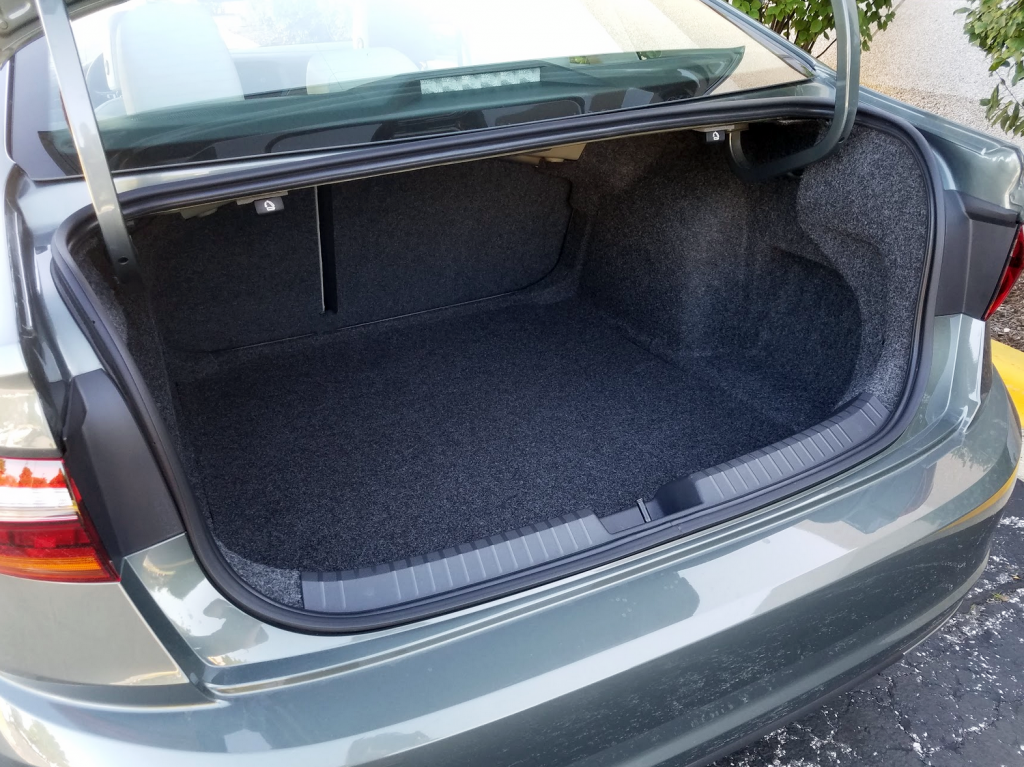
CG’s latest Jetta test car stickered for $27,795, which reflects an SEL Premium with nothing added to it but the delivery charge. The final bits that lift a Jetta to that lofty perch include an interior with leather seats—ventilated in front—and a 6-way power-adjustable driver’s seat. The driver’s seat and the power side mirrors gain a memory function, too. Tech upgrades count navigation and the “Security & Service” and “Guide & Inform” functions for the existing VW Car-Net telematics system. Finally, there are specific premium-finish 17-inch alloy wheels.
Features carried up from other trim levels start with LED headlights and taillights, fog lights, automatic high-beam control, rain-sensing windshield wipers, heated external mirrors, and a panoramic sunroof. Inside are a leather-wrapped steering wheel with thumb-button function controls, 10-color ambient lighting, heated front seats, auto-dimming rearview mirror, dual-zone climate control, and keyless access and starting. Electronic driving aids list the “Digital Cockpit” instrument cluster, adaptive cruise control, forward-collision warning and mitigation, lane-keeping assist, and blind-spot and rear-cross-traffic alerts. Infotainment comes via an AM/FM/HD radio with 8-inch color touchscreen, satellite radio, a glove-box-mounted CD player, BeatsAudio sound system with subwoofer, Apple CarPlay/Android Auto functionality, Bluetooth capability, and voice control.
The standard—make that “only”—powerteam for most Jettas is a familiar 1.4-liter turbocharged 4-cylinder engine with a new 8-speed automatic transmission. (A 6-speed manual gearbox is standard on the entry-level Jetta S.) It is rated at 147 horsepower at 5000 rpm, but with 184 lb-ft of torque that peaks at a low 1400 rpm. Standing starts come with a brief moment of turbo lag, but once that passes, power builds linearly. The Jetta cruises at normal highway speeds without much strain. Transmission shifts are positive but not punitive, and kickdown happens quickly for confident passing.
EPA fuel-economy estimates for the 2019 Jetta are 30 mpg in the city (a gain of two from ’18), 40 mpg on the highway, and 34 combined. This driver recorded 30.0 mpg from his test stint of 148 miles that included 80 percent city-type driving. A selectable power-trimming “ECO” mode and a stop/start feature are included to help wring fuel savings from the Jetta. Note that the latter’s cutoff at full stops can seem unpleasantly abrupt, but the function can be switched off from a button on the console.
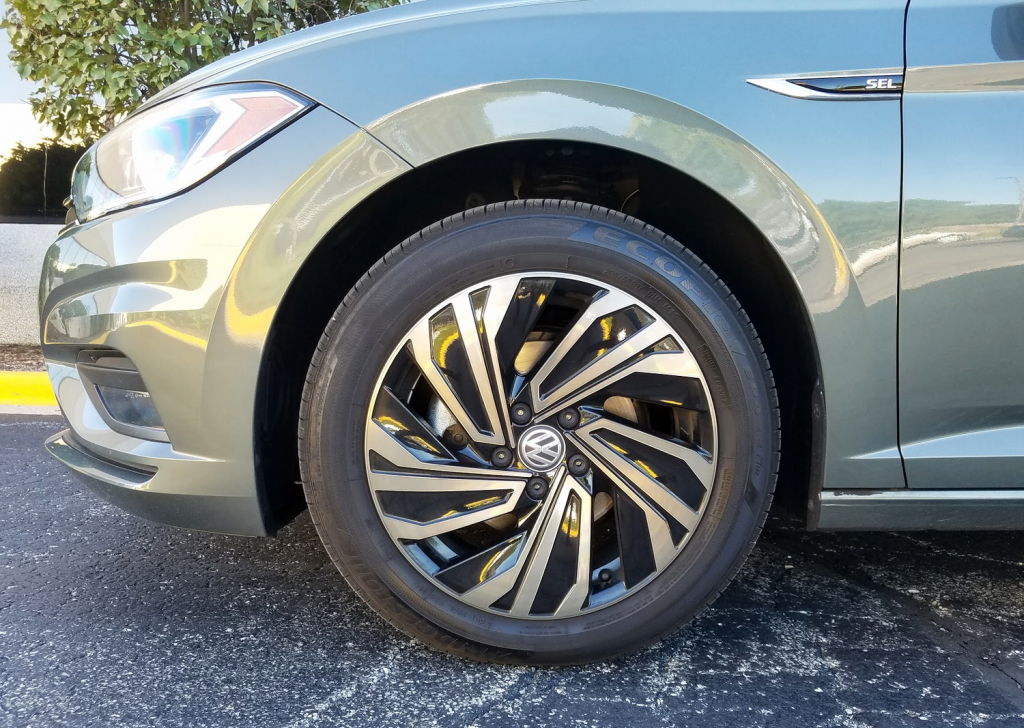
With the shift to a twist-beam rear axle, the new Jetta is more susceptible to registering road shocks than prior models were. The default variable-assist electromechanical power steering comes off feeling somewhat light, even a little numb, but response to inputs is still fairly good. Plus, a “Sport” mode standard on the SEL and Premium tweaks steering feel and throttle response.
Passengers find themselves settled on comfortable and supportive seats within a roomy cabin where even 6-footers may find good legroom when riding in the back seat. A middle-rear passenger—and there is room for three across—will have to straddle a tall floor hump. Headroom is good all around, and vision is clear to almost any direction a driver would need to look. The Digital Cockpit array allows the driver to call up variable displays in the space for driving controls—even a map view that fills the available screen area. The top-level Discover Media audio system in the SEL Premium is easy enough to tune, thanks to an external knob, but inputting presets takes an additional step that simpler VW units don’t require—a minor complaint. The climate system uses wonderfully convenient rotary dials to set temperature and fan speed, and easily accessible one-tap buttons regulate other functions.
Storage for the kinds of things passengers tend to bring along is handled by a commodious glove box, a deep console box, and an open bin with a USB port ahead of the console. That cost-cutting we mentioned earlier shows up as a single rear storage pouch, this affixed to the back of the front passenger seat, and no climate vent in the back of the console to heat or cool rear passengers. All four doors feature pockets with bottle holders, and there are pairs of exposed cup holders in the console and the pull-down rear armrest.
Even with the loss of two cubic feet from the trunk the Jetta still has fine small-car cargo room that’s easy to access. Still, exposed gooseneck hinges intrude on the load space, and the backs of the 60/40-split rear seats settle about four inches above the level of the trunk floor when retracted. Also, there’s a bulkhead behind the seats that narrows the threshold from the trunk area.
For a lot of practical reasons, the new Jetta is eminently likeable right off the bat. To love it, though, might require some “working on the relationship.”
